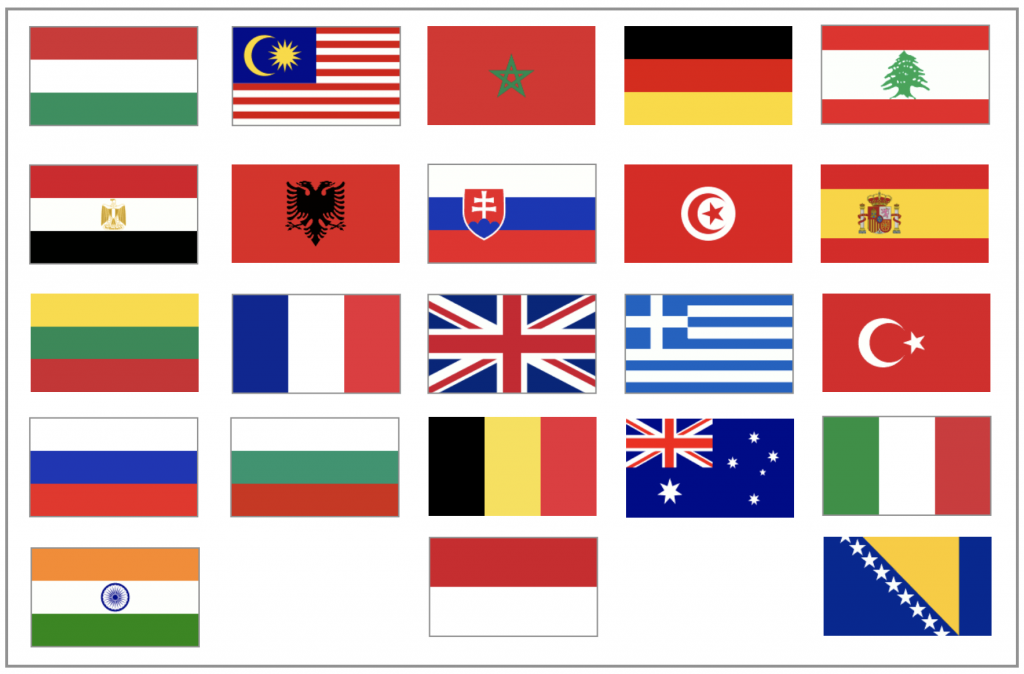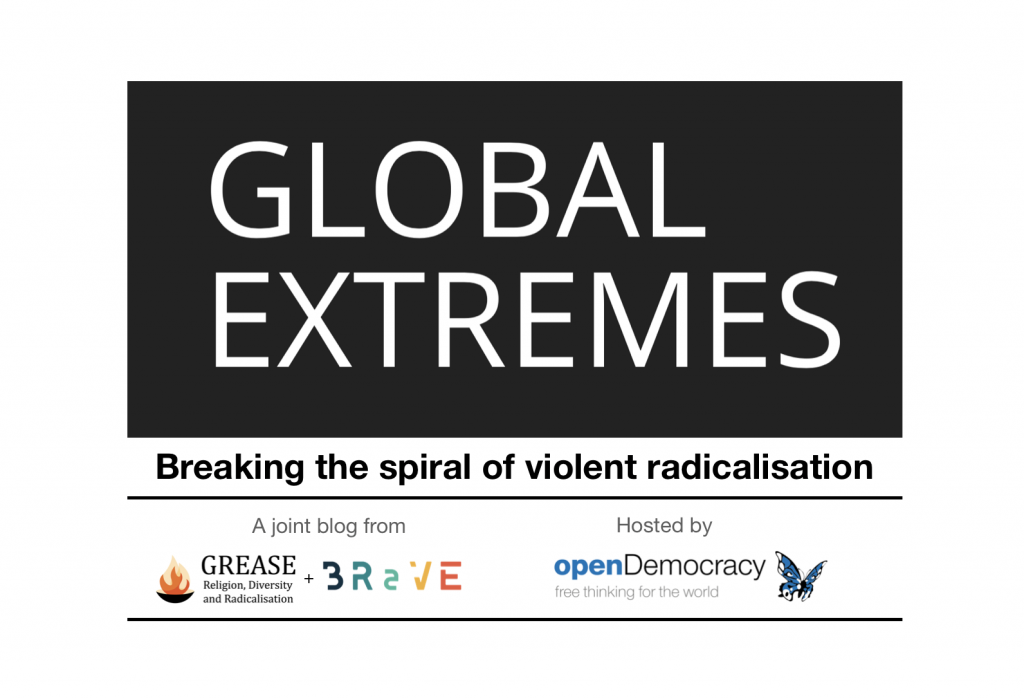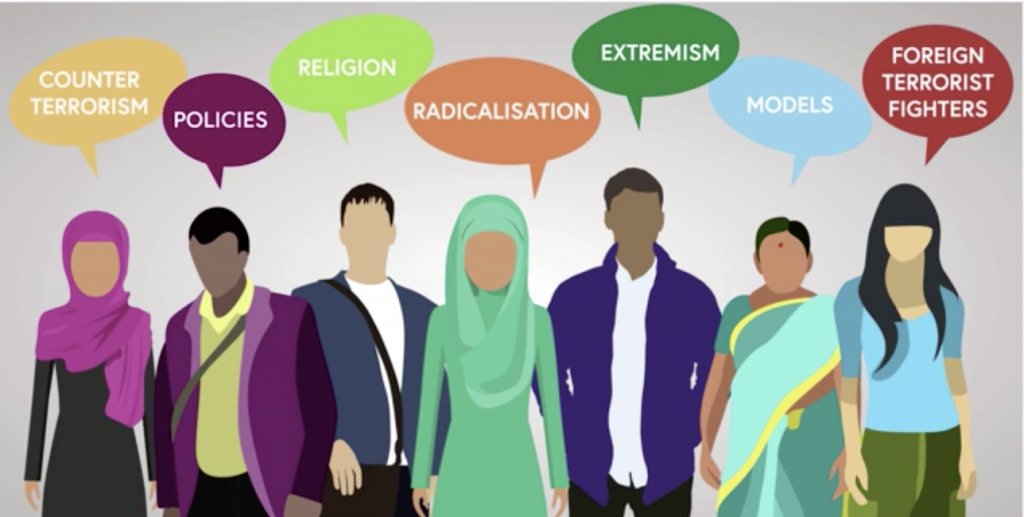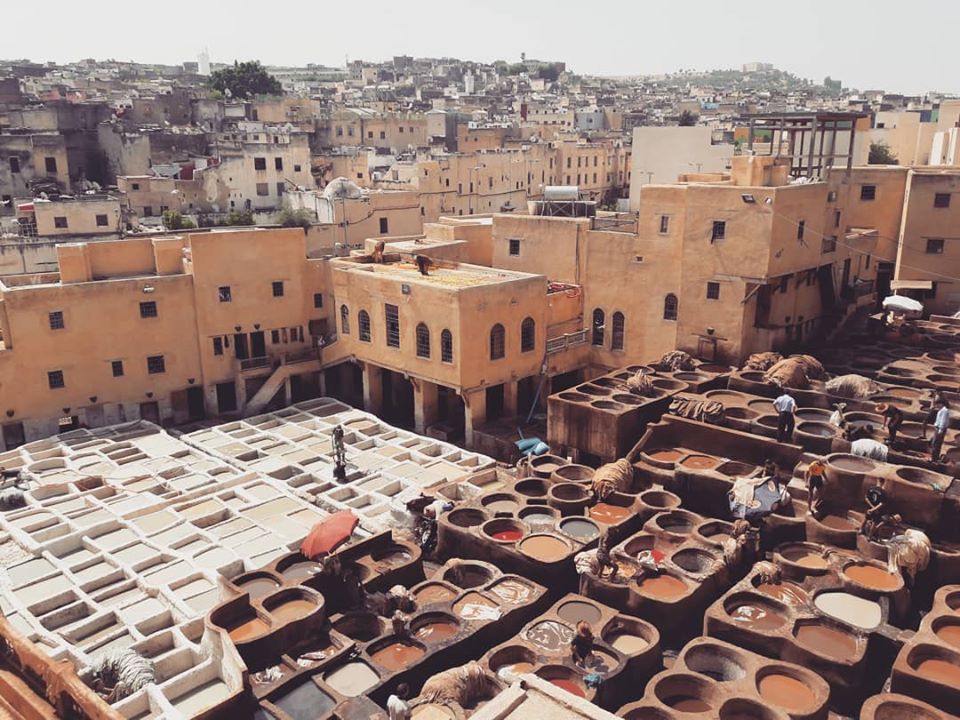December 2019

It’s been a productive few months for the GREASE consortium.
We’re particularly proud of our new Country Profiles and Reports series, offering detailed information on religious diversity and governance in 23 countries.
We’ve also run our second Massive Open Online Course, reaching out to enthusiastic learners all around the world.
Meanwhile, in collaboration with our friends from the BRaVE research project, we’ve launched a high-profile blog called “Global Extremes”. This blog is hosted on the popular OpenDemocracy platform and features analysis and opinion from consortium members in both projects.
Plus, we are delighted to announce the imminent completion of two ambitious documentary films. Working with the experienced Italian production company Terra, we have gone around the globe (literally) to illustrate the relevance of our subject matter to people in diverse cultural contexts.
Country Profiles and Reports

Four continents. Eight regions. 23 countries. 745 pages of solid information and analysis. The completion of our Country Reports and Profiles series marks a significant milestone for the project. Applying the analytical framework articulated in our Concept Papers, we have created a unique resource on religious diversity governance in a broad range of settings. The dossiers, which are free to download from the “Publications” section of our website, should prove valuable to both academics and policymakers when exploring topics related to religious diversity governance, state-religion relations, secularism and religiously inspired violent radicalisation.
Altogether we looked at eight macro-regions, four of them in Europe and four outside of Europe. These regions include predominantly Muslim countries (Egypt, Morocco, Tunisia, Turkey, Indonesia, Malaysia); countries with pronounced historical religious diversity (India and Lebanon); and one predominantly Christian country with a migrant pluralist profile (Australia). Each of our 11 academic partners was responsible for conducting research in their own geographical regions. They produced a Profile and a Report for each country in their remit, resulting in 23 document sets. The Profiles have a uniform six-page format providing a quick overview of our subject matter in the given country; the Reports are of variable length (between 17 to 54 pages) offering much more detail and analysis.
While the series was not produced using comparative research methodology per se, the documents share a similar set of data points and are similarly structured, thus lending themselves to comparison. The idea was to map the different approaches to governing religious diversity and show how religiously inspired violent radicalisation is being dealt with in distinct parts of Asia and Europe. Our hope is that the insights gained through this exercise will provide a basis for re-thinking models of governing religious diversity as needed.
Launch of Global Extremes

In addition to producing academically oriented research papers (including the above), GREASE is also reaching out to a broader community of stakeholders by utilizing blog formats. Those who have followed our project from the beginning may already be acquainted with our self-hosted “GREASE BLOG”. Introduced last March, that blog stream provides space for members of our own consortium to reflect on GREASE-relevant current events. Now we have gone one step further with the launch of “Global Extremes” on OpenDemocracy.net. This exciting new blog project enriches academic and public discourse by critically examining the dynamics behind religiously inspired violent radicalisation and far-right extremism.
Introduced in October, Global Extremes is a joint effort combining resources from GREASE and another EU-funded project called BRaVE. Both projects are coordinated by Anna Triandafyllidou through the European University Institute. In contrast to GREASE, which focuses on religious diversity and the religious dimension of violent radicalisation, BRaVE has a broad scope, examining polarization in general, including the phenomenon of right-wing extremism.
Nearly all the articles on Global Extremes right now are from researchers involved in our two projects. In the coming months, however, we plan to invite research-driven analysis and viewpoints from external contributors as well.
Our cooperation with OpenDemocracy massively boosts GREASE’s public outreach potential. The platform, which has 85,000 followers on Twitter, claims its articles were accessed more than 8 million times in the past year.
Second online course

Building on the success of our first online course (which addressed governance of religious diversity), we have produced an entirely new one. Our latest course, “Religion, Radicalisation and Resilience”, is aimed at helping people understand religiously attributed violent radicalisation and how to build resilience to it in communities and schools. This course, like our first one, is hosted on the web-based learning platform Future Learn (futurelearn.com) and it can be accessed free of charge.
Featuring interviews, case studies, graphics and lots of essential information, the course is designed to serve the needs of university students, teachers, civil society activists and journalists. It explores central questions concerning the relationship between religion, radicalisation and resilience, such as:
- How can violent radicalisation be recognised?
- What forms does violent radicalisation take in different countries?
- How does violent radicalisation emerge?
- What religious attributes can violent radicalisation have?
- How can we build resilience towards violent radicalisation within communities?
After its initial rollout in September of 2019, this course is scheduled to start a new run on March 2nd, 2020. (Sign up here. ) Our other course, “Governing Religion: European Challenges and Asian Approaches”, will start again on January 6, 2020. (Join here.)
Participants in our courses are expected to complete them within a three-week period, but within that time frame learners are free to proceed at their own pace.
GREASE films

We are very excited about the imminent release of two documentary films we’ve been working on since the beginning of the project. Painstakingly produced by the Italian film company Terra, the films will play a vital role in supporting our education and outreach efforts. Finishing touches are being put on them now and we expect both films to be released around the start of the new year. (When the films do come online, GREASE Newsletter subscribers will receive special notification with instructions on how to access them.)
What are the two films about?
With a running time of just under one hour, Film 1 (title forthcoming) stretches across multiple countries, faith communities and age groups. It features interviews with people in distinctly different cultures, offering intimate portrayals of lived experiences of religion. The 12 interviewees in the film explain the role they see religion playing – positive or negative – in their individual lives and societies. Overall the documentary provides a compelling mosaic of minority-majority relations and the challenge of governing religiously diverse societies.
Our second documentary addresses the vital tasks of preventing and countering religiously inspired or religiously attributed violent radicalisation. Just under 30 minutest long, it looks at examples of organizations effectively engaged in this effort in multiple cultural settings. While exploring what kind of measures are useful, the film also looks at what counts as success in combating violent extremism and how religious figures can play an important role in combating it.
The making of these films involved extensive travel. The Terra production team visited a total of seven countries from Hungary and Morocco to India and Australia.
